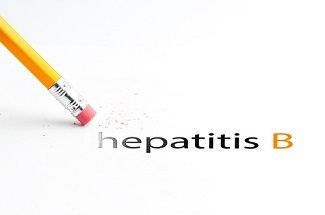
Hepatitis B virus infection remains a serious health problem in Africa, and the COVID-19 pandemic has disrupted efforts to control hepatitis B and eliminate mother-to-child transmission.
The U.S. Centers for Disease Control and Prevention (CDC) stated in a recent Morbidity and Mortality Weekly Report that approximately 66% of the 1.5 million new cases of chronic hepatitis B infection in 2019 occurred in Africa. Vaccination coverage has not yet reached the target of eliminating the disease as a public health threat by 2030.
“Hepatitis B birth-dose vaccine, given within 24 hours of birth, prevents mother-to-child transmission of hepatitis B virus, a leading cause of liver disease and death,” Hyacinte J. Kabore, DDS World, Vaccine Preventable Disease Branch, WHO Regional Office for Africa.Tell infect. “Every child needs to be vaccinated against hepatitis B at birth, and then 2 to 3 additional doses before age 1 for lifelong protection against the hepatitis B virus.”
The African region introduced a birth-dose hepatitis B vaccine in 2014, but by the end of 2021, only 14 of the region’s 47 countries had made the birth-dose vaccine available as part of their routine vaccination programmes. No country in the region has achieved the World Health Assembly goal of eliminating mother-to-child transmission, which accounts for the majority of new cases.
“This study highlights the urgent need to accelerate the introduction of birth doses of hepatitis B vaccine and increase coverage in Africa, which could prevent the deaths of more than 554,000 children born between 2020 and 2030 and increase coverage of the three-dose hepatitis B vaccine rate to prevent more infections,” Kabore said.
By 2021, all 47 countries in the region offer three doses of hepatitis B vaccine to infants, but only 16 countries (34%) have coverage of 90% or higher. Only two countries have birth dose coverage of 90% or higher. Four countries achieved HBV control.
“While the results of this study are not surprising, they suggest that the disruption caused by the pandemic is having a negative impact on progress in controlling hepatitis B in the African region,” Kabore said. “Regional vaccination coverage in 2021 Still low, hepatitis B birth dose coverage is 17% and three-shot coverage is 71%.”
The outbreak has disrupted immunization services in the region, causing the number of countries with three-dose vaccine coverage to fall to 90% or above from 20 countries in 2018 to 16 in 2021. Nearly 33 million newborns in the region did not receive their 2021 birth dose of vaccine in time.
Two countries in the region added birth doses to routine vaccination programs in 2022, and 13 countries announced plans to introduce the vaccine by 2025.
The report calls for strategies such as catch-up vaccination campaigns to reach children who have missed out on hepatitis B vaccination during the pandemic. It also recommends promoting delivery in health care facilities, training health care workers and integrating hepatitis B vaccination into newborn care, while providing testing and antiviral drugs to pregnant women with hepatitis B virus infection who are eligible for treatment.
“To control hepatitis B and eliminate mother-to-child transmission in the African region, campaigns to expand hepatitis B vaccination at birth and increase coverage of the full hepatitis B vaccine series are critical,” Kabore said.
